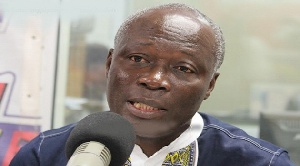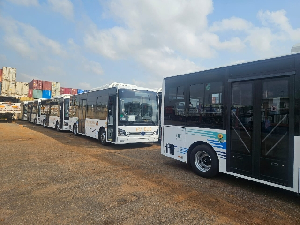When the International Monetary Fund (IMF) moved in to help stop Liberia’s economy from further collapse, one of its recommendations for resuscitation was that the Liberian government must refrain from borrowing from the Central Bank and ensure the total independence of the Bank.
The IMF made this recommendation in March 2019 after a team was dispatched to Liberia to investigate the cause of Liberia’s economic nosedive.
The IMF team at the time noted that, with the appropriate preconditions firmly in place, a timely reduction of the rate of inflation to single digits appears possible. Of the necessary preconditions, the most critical is that the Government refrains from borrowing from the central bank in addition to reducing the central bank’s operational deficit.
In his Annual Message this year, President George Weah bragged about abiding by the IMF’s recommendation. He said, “… in my economic speech last year, I announced a policy of no government borrowing from the Central Bank of Liberia. I am pleased to report that, despite salary delays and a tight fiscal situation in fiscal year 2019/2020, the Government of Liberia remained firm in this commitment and did not borrow from the Central Bank of Liberia. This defines the separation between fiscal and monetary policy, and we will build on it as a cornerstone to developing an independent Central Bank of Liberia.”
However, having failed to budget for this year’s midterm election, which of course was in sight, Finance and Development Planning Minister Samuel Tweah, told members of the Senate the government remains committed to conducting the election, even if it means borrowing money from the Central Bank to make it possible.
He made the statement on Tuesday when he was invited to give reasons why the government has not committed any funding to the election which is just six months away.
“The last thing this administration will do is to delay these elections by one hour and if we had the will we will want elections to be conducted in May, but constitutionally it is October so we will,” Minister Tweah said.
Min. Tweah added, “We have managed to have zero credit records at the CBL so if it means if crediting from the CBL is our last result we will do that to have elections in October.”
The Chairman of the National Elections Commission (NEC) had told the Senate that he cannot vouch for the credibility of the elections as the NEC has not been able to commence of the activities leading to the conduct of the elections in accordance with its time table.
Cllr. Jerome Korkoya said despite agreeing to squeeze the US$23 million budget down to US$17 million, the government has to date not provided any funding to support the process.
Cllr. Korkoya had also complained of interference from other government officials, whom he said are not election experts. According to him, these officials, whose names he didn’t call, make suggestions and interferences.
“That’s one of the problems we have. If people will leave the National Elections Commission to determine and make the technical decisions and people respect that, it is fine. But everybody is an election expert in Liberia. That is a problem; at the end of the day, they want credible results. We submitted the budget months back, and we did follow up,” Cllr. Korkoya lamented.
The Finance Minister who has a history of clashing with the NEC Chairman over the cost of election believes the US$17 million is still way too high for the conduct of the Senatorial election. He said he believes there is still a margin for saving, noting that it is possible to conduct the election for less than US$ 17 million.
“All of the cost we are looking at right now in that budget is reasonable and there are different permutations to look at. I don’t believe the budget will not be able to deliver, seventeen is a lot of room effectiveness.”
Government Remains Committed
According to the Finance Minister, the Executive is proposing US$3 million in the recast budget to support the electoral process. He added another US$6 million would be proposed in the next fiscal year’s budget which begins in June.
“So, from a government perspective, the government will provide US$9 million while our international partners have committed to financing the balance of the US$17 million.”
The Finance Minister attempted to make the Senators comfortable that the delay in funding would not in any way affect the processes leading to the election to the election. He said, “The thing about it is that you are actually not spending money before the election, it is a process that leads to and even after the election, it is the procurement process.
“There is absolutely no doubt that there will be money for elections. I can assure the public. The question now is the issue of legality, whether if there is no money in the budget, the Minister of Finance can singularly abrogate unto himself the authority of the legislature to allot money.”
Africa Business News of Thursday, 12 March 2020
Source: frontpageafricaonline.com
Government likely to borrow from Central Bank to fund October midterm election
Entertainment
















